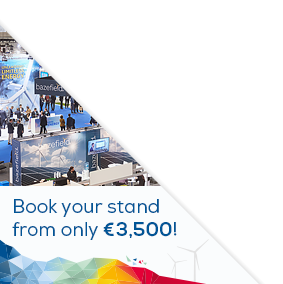Posters
Siblings:
ProceedingsProgrammeProceedingsSpeakersPostersContent PartnersElectrification StageMarkets TheatreR&I ActivitiesStudent DayProgramme Committee & abstracts reviewersPresenters dashboardCome meet the poster presenters to ask them questions and discuss their work
We would like to invite you to come and see the posters at our upcoming conference. The posters will showcase a diverse range of research topics and provide an opportunity for delegates to engage with the authors and learn more about their work. Whether you are a seasoned researcher or simply curious about the latest developments in your field, we believe that the posters will offer something of interest to everyone. So please, join us at the conference and take advantage of this opportunity to learn and engage with your peers in the academic community. We look forward to seeing you there!

PO053: A general methodological framework to quantify the supply of marine ecosystem services in the context of offshore renewable energy development
Yoann Baulaz, Research fellow, France Energies Marines
Abstract
Offshore wind industry is actually booming and considering the integration of these new activities in marine spatial planning becomes an urgent priority. Tools and methods must be developed to consider the impacts of offshore wind farm (OWF) on the ecosystems and the human activities and support decision-making. To that aim, the ecosystem service (ES) mapping approach is particularly powerful, as it allows to study ecosystem dynamics and to link them to the spatialization and the development of human activities. However, this methodology faces challenges in mobilizing marine ecological and socio-economic data to map services, and to integrate the full dynamic, multi-scale range of ecological processes to characterize ES provision. For this purpose, coupling ecosystem models, which seek to model trophic relationships in a holistic way, with the ES concept is highly promising. Trophic modeling has already been developed from different studies related to OWF and could be used to improves our understanding of the OWF impacts on ES supply. The purpose of this research is then to propose a methodological framework with indicators from trophic modeling, allowing to map the supply of all ES and their evolution in the context of OWF development. These results serve as a basis for a methodological discussion on the contribution of trophic modeling for the ES mapping, its challenges in the context of marine renewable energy, and a reflection on the integration of the ES cartography for marine spatial planning.







